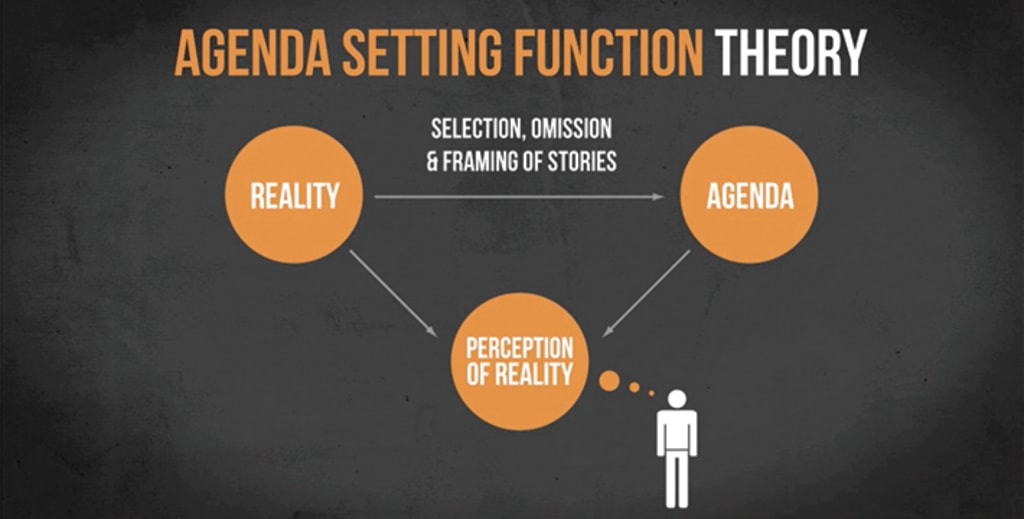Agenda Setting
How can I set your agenda?

Agenda setting is a concept that has been widely studied in the field of media studies. It refers to the way in which the media influences the public's perception of what is newsworthy and important. The media has the power to shape the public's opinion by choosing which topics to cover and how to present them. This power has significant implications for democracy and the way in which society operates.
The concept of agenda setting was first introduced by Maxwell McCombs and Donald Shaw in the 1970s. Their research showed that the media has the power to influence which issues are seen as important by the public. McCombs and Shaw argued that the media's influence on the public's perception of important issues was even greater than the media's influence on the public's opinions about those issues.
Agenda setting works through a number of mechanisms. One mechanism is through the selection of news stories. The media chooses which stories to cover and which stories to ignore. This means that some issues will be seen as more important than others. For example, a story about a political scandal might be seen as more important than a story about a local charity event.
Another mechanism through which agenda setting works is through the framing of issues. The media has the power to shape the way in which issues are presented to the public. This means that the media can influence the way in which people perceive and understand issues. For example, a story about immigration could be framed in a positive or negative way, which would influence how people perceive immigrants and immigration policies.
The media can also influence the public's perception of important issues by giving more or less coverage to certain issues. This means that the media has the power to influence the public's perception of the importance of an issue. For example, if a news outlet gives extensive coverage to a particular issue, such as climate change, the public is more likely to see that issue as important.
Agenda setting is not an absolute power. There are a number of factors that can influence the media's ability to set the agenda. One factor is the presence of competing news sources. If there are other news sources reporting on a particular issue, the media's ability to set the agenda is reduced. Social media has also had a significant impact on the media's ability to set the agenda. Stories that gain traction on social media can quickly become important issues, regardless of whether or not the traditional media covers them.
There are also limitations to the media's ability to set the agenda. For example, the personal experiences and beliefs of individuals can influence their perception of what is important. This means that some people may see issues as important even if they are not covered by the media.
Despite these limitations, the media's agenda setting power is still significant. The issues that the media chooses to focus on can have a major impact on public opinion and policy decisions. This is why it is important for journalists and media organizations to be aware of their agenda setting power and to use it responsibly.
In conclusion, agenda setting is a powerful concept that has significant implications for democracy and society. The media has the power to influence the public's perception of what is newsworthy and important through a variety of mechanisms, including the selection of news stories, the framing of issues, and the amount of coverage given to certain issues. While the media's agenda setting power is not absolute, it is still significant and can have a major impact on public opinion and policy decisions.
About the Creator
Yusuf Mert Türk
2 Short Films, winners of dozens of awards. Screenwriter and director. Lives in Istanbul.






Comments
There are no comments for this story
Be the first to respond and start the conversation.